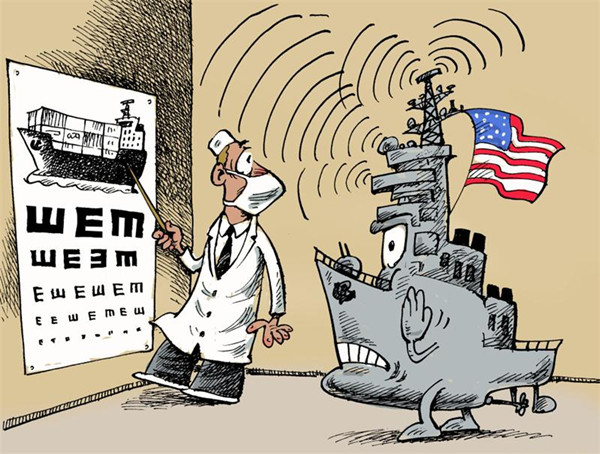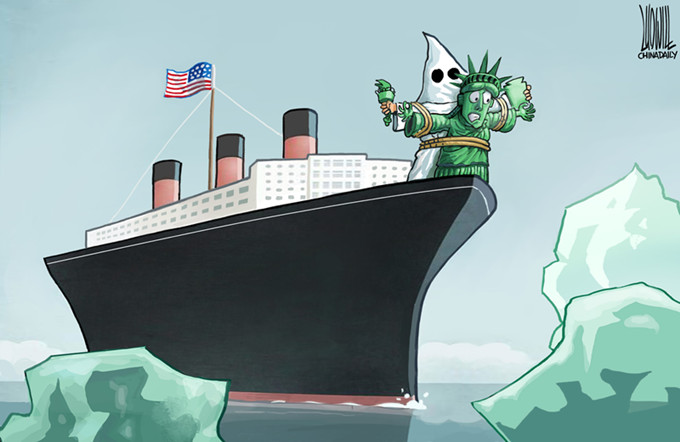Navy patrols will compromise regional peace
 |
|
South China Sea by Fang Jianping / China Daily |
US media reports say the Pentagon is mulling more regular patrols in the South China Sea, perhaps two to three a month as proposed by the US Pacific Command, to emphasize the importance of "freedom of navigation" in the waters claimed by China.
Although the US Navy had been sailing freely around the world for decades, the Barack Obama administration started the controversial practice in the disputed waters of the South China Sea with the specific purpose of confronting China. The Obama administration approved four "freedom of navigation" operations in the disputed waters in the last year of his term, fueling tensions between the two countries. After Trump took office, the US has conducted three such operations.
China has condemned the operations as blatant provocation.
Considering that Trump is yet to explicitly explain his Asia-Pacific policy, by continuing the patrols he will also continue the confrontational policy of Obama. So before he does so, he should be advised to rethink the US practice, also because it appears increasingly untenable.
The US military maneuverings seem to be at odds with the trend of US global strategic contraction, which is deemed as a natural outcome of Trump's "America First" policy. It should also be mentioned that, thanks to efforts of China and some Southeast Asian countries, the South China Sea disputes have markedly de-escalated, which means the US will lose its high moral ground if it continues to act as a self-appointed referee in the region.
Last month, the foreign ministers of China and the Association of Southeast Asian Nations member states endorsed the framework for a Code of Conduct in the South China Sea in Manila, marking a significant step forward in building peace in and stabilizing the region.
The document should make the US realize that the time for it to use the maritime disputes to interfere in regional affairs is over. Yet by mulling more regular navy patrols in the South China Sea, Pentagon is sending a signal that it is not ready to accept the new reality in the waters and change its behaviors accordingly.
If Trump gives the green light to more US patrols in the South China Sea, he will cast a shadow on China-US ties, which would go against the two countries' efforts to improve ties and deepen cooperation at bilateral and multilateral levels. Stronger US military presence in the region, widely perceived as a US strategy to contain China's rise, will trigger rising regional concerns over a China-US confrontation, and thus disrupt the current good atmosphere created by regional efforts to resolve the maritime disputes.
Besides, the US does not have any legal ground for conducting "freedom of navigation" operations in the South China Sea, as the UN Convention on the Law of the Sea allows foreign vessels to enjoy the right of innocent passage through territorial waters, but military vessels are not endowed with the same right.
Against such a backdrop, China is justified in interpreting the muscle-flexing by the US military in the name of "freedom of navigation" as a threat to regional peace and stability. A series of accidents involving US military vessels in the Pacific this year-the US Navy lost 17 sailors in two of these accidents-provides ready proof that the US move can be a threat to its own military personnel as well.
Instead of following Obama's policy, Trump should be advised to come up with a better Asia-Pacific policy that would help deepen cooperation, not trigger a confrontation, in the region.
The author is a senior writer with China Daily.
wanghui@chinadaily.com.cn





















